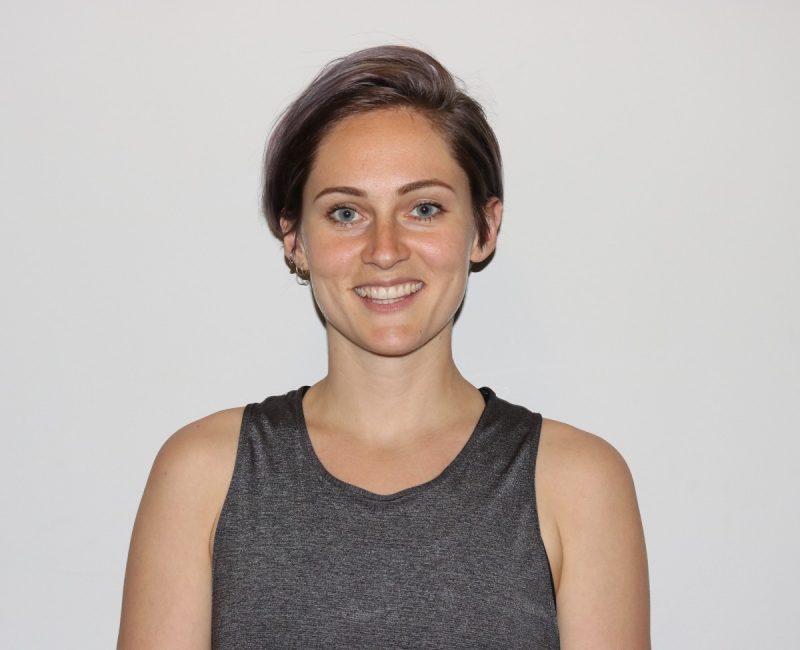
Jayme Menzies (bottom, far right) has been a youth coach and mentor for more than a decade
Forging connections through sport
If one needed a passport to travel around Manitoba, Jayme Menzies’ would have stamps and stickers jumping off its pages.
When she’s not working as part of the National Inquiry into Manitoba Missing Indigenous Women and Girls’ (MMIWG) legal team, Menzies, 31, is criss-crossing the province running sports camps in rural, remote and fly-in First Nation communities.
The U of M Faculty of Law graduate also spends a significant portion of her time coaching provincial-level Indigenous girls’ volleyball.
Menzies has been highlighted as a voice of the community, and will be sharing more about her experiences as a leader and advocate for Indigenous, First Nations, Inuit, and Metis youth at the inaugural Sport and Reconciliation Forum.
Her time coaching and mentoring kids goes far beyond the bullet points in the experience section of her LinkedIn profile. For her, this is all personal.

Menzies was also the head coach of Team Manitoba’s gold medal winning women’s volleyball squad at the 2017 Canada Summer Games
Menzies is Métis. It’s not just something she says, like a quip in passing. Being Métis is a fundamental part of who she is. An important block in the quilt of her identity.
She isn’t from Winnipeg originally. She moved here from Brandon, Man., after high school in 2004. A gifted athlete, she caught the attention of the University of Winnipeg Wesmen who recruited her to join their volleyball program and study at their school.
The University of Winnipeg’s main campus is located in downtown Winnipeg, bordering what is commonly known as the city’s core area. Menzies was 17 and new to the city. Her new surroundings were a lot to take in, she remembers.
“I was really frustrated with the racist attitudes I was confronting. I was frustrated with the poverty I was seeing. I knew I wanted to help, but I didn’t know how at first.”
Advice columns and self-help books often state it’s not about what happens to you, it’s about how you respond. Not one to cower from a challenge, Menzies took it upon her to make a difference in the community using the instrument she knew best: sport.
For the better part of a decade, Menzies has been heavily involved coaching Indigenous girls’ provincial level volleyball teams. In 2016 she was bestowed with the Manitoba Aboriginal Sports & Recreation Council coach of the year award.
She’s also created a variety of all-ages, all-gender sports camps she brings to First Nation communities across the province. She calls this experience life-changing.
“I’ve only found that the kids are grateful, polite, hardworking. I’ve actually stopped being surprised by this because I know I’m going to be welcomed with open arms and made to feel at home when I visit these communities.”
“Spending time with these kids has done as much for me as it has for them. They’ve changed my life and my viewpoints on things. I wish everyone could have these experiences.”
She admits she’s not sure how she feels about the progress of the Reconciliation process thus far. However, she says sports can create connections—and forging connections can lead to relationship building and mutual trust.
“When I leave a community, some of the kids will add me on Facebook. I don’t hear from them a whole lot, but they’ll drop me a line every once in a while, letting me know how things are going or asking for advice. Our connection through sport has given them a relationship with me they feel they can rely on.”






